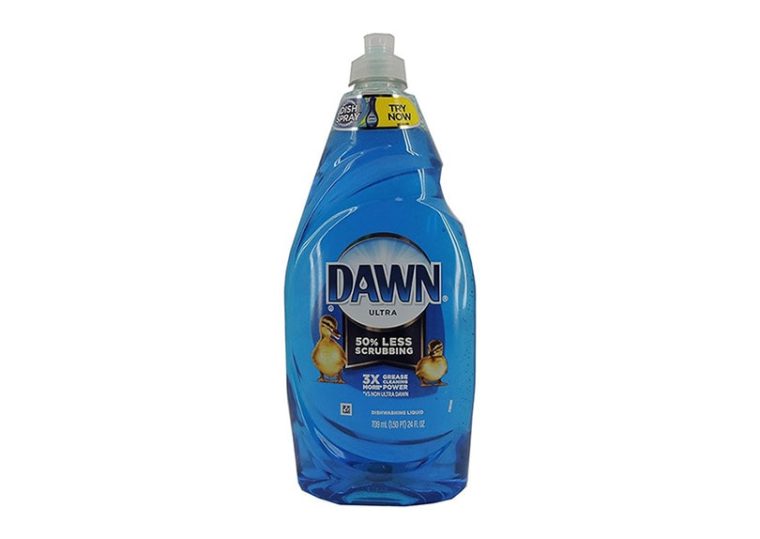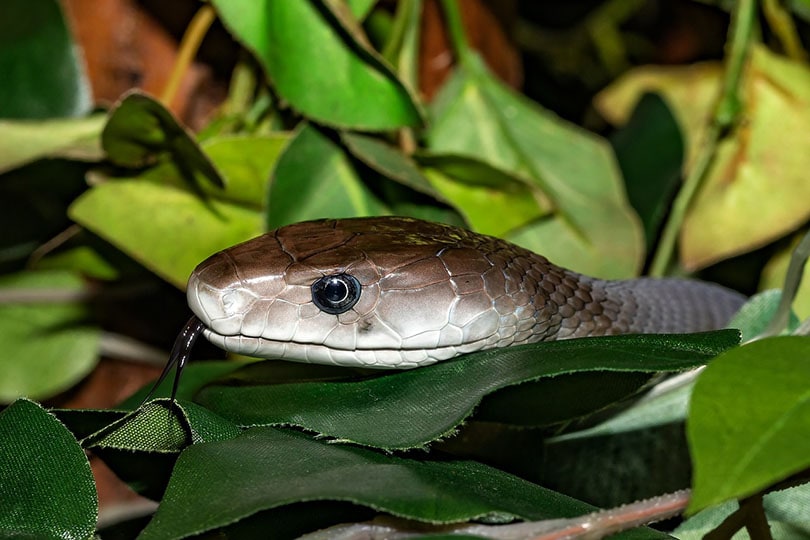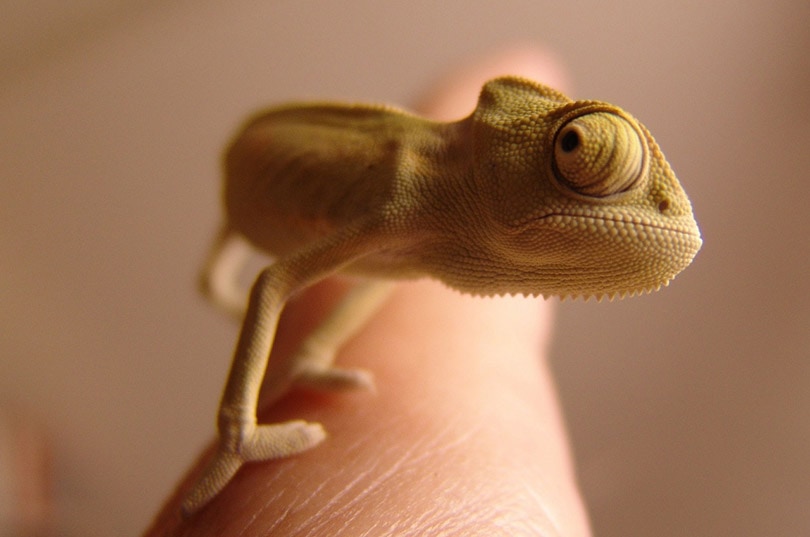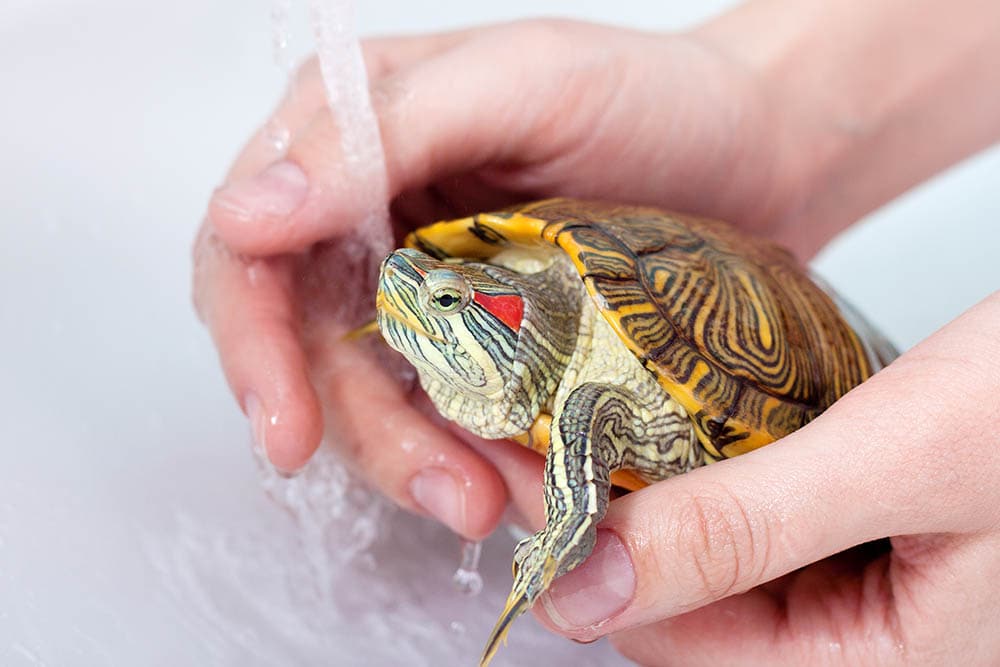
When it’s time to undertake a deep clean of your reptile’s tank, you may be dreading the work. After all, your pet’s tank is full of habitat décor, and your snake, turtle, or lizard doesn’t like leaving its home.
If you’re wondering if you should clean your tank with Dawn dish soap, you should not do that. Dawn dish soap is made for washing dishes and not reptile habitats! The bottom line is that no dish soap is safe for reptiles, including Dawn.
Use a Tank Cleaner Made for Reptiles
To get your tank clean, disinfected, and deodorized effectively and safely, use a special terrarium/tank cleaner safe for reptiles. There are many of these cleaners on the market. Check with your local pet store to see if they can recommend one to use. Just be sure that the cleaner you buy is completely safe to use for the type of animal you have!

How To Clean Your Reptile’s Tank
To properly clean your reptile’s habitat, remove the animal and put it in a safe place. Then take all the decorations, food, and water dishes out of the tank as well as the substrate. Once the tank is empty, follow the directions on the bottle of reptile-safe tank cleaner you’re using.
Most tank cleaners are intended to be sprayed on all the surfaces of the tank. Once sprayed, you should let the cleaner stand for a few minutes so it can remove stuck-on food, feces, and grime while killing bacteria. Then it’s just a matter of wiping all the surfaces clean until they’re dry.
It’s a good idea to clean your tank in a ventilated area so it can thoroughly dry out. If possible, open a window to let fresh air circulate while your tank is drying.
Once you’re sure the habitat is completely dry, you can put a new substrate down. But don’t replace the decorations or food and water dishes until you’ve cleaned and dried them thoroughly.
Never Reuse Substrate
You may be tempted to reuse the same substrate you removed from the tank before cleaning it. Maybe you’ve read online that some people wash reptile substrate so they can reuse it.
The general rule of thumb regarding reusing substrates is don’t do it. Why not? Because even if it looks clean, the old substrate can be riddled with bacteria that you don’t necessarily see.
Remember that it’s your job to take good care of your reptile—whether it’s a pet snake, turtle, or lizard. Your pet depends on you to make the right decisions regarding his health and care. Substrates should be replaced every time you do a deep cleaning of your tank, just to play it safe!

How Often To Do a Deep Cleaning
There’s no exact consensus on how often a reptile tank needs a deep cleaning, though every 2-3 weeks is likely sufficient. If you have several tanks, it’s a good idea to deep clean one each week so you can keep track of what tank needs cleaning.
It all depends on what type of reptile you have and how dirty and stinky the enclosure gets, so use your best judgment.
Tips For Keeping Your Reptile Tank Clean On a Daily Basis
To make those deep cleaning days go smoother and to keep unpleasant odors at bay, there are a few things you can do every day to keep your pet’s habitat clean.
By doing these simple tasks every day, those big cleaning days won’t be so tough! You won’t have to scrape off gross bits of residue from the bottom and sides of your tank or put up with disgusting smells in between your big cleaning days.
 Conclusion
Conclusion
Even if you love Dawn dish soap and consider it a “wonder cleaner”, it’s nothing you should be using on your reptile tank! Dawn dish soap is made for cleaning dirty dishes and not reptile habitats so don’t use it on your tank! Get yourself a reptile-safe cleaner you can use on those days you deep-clean your tank.
See Also:








